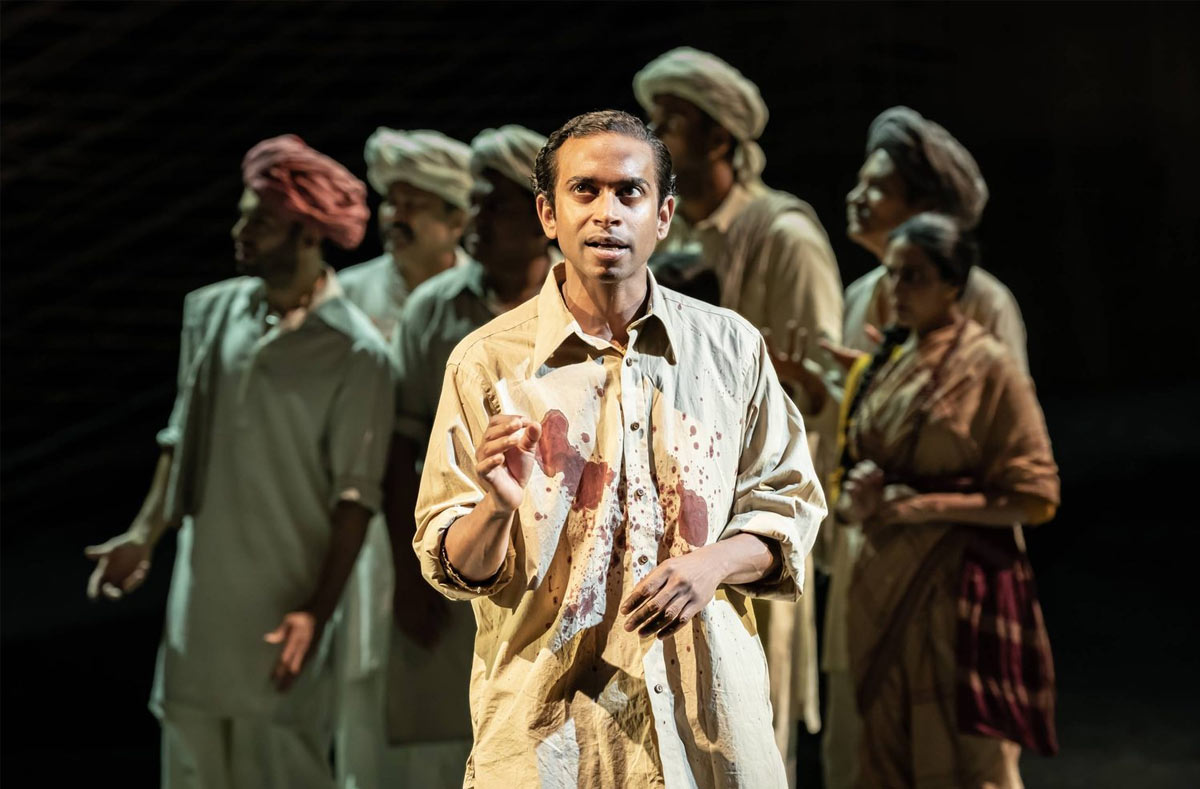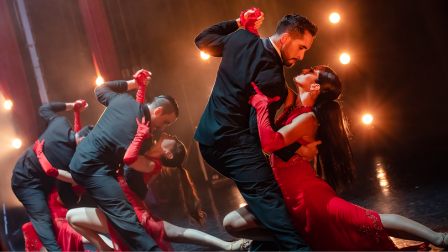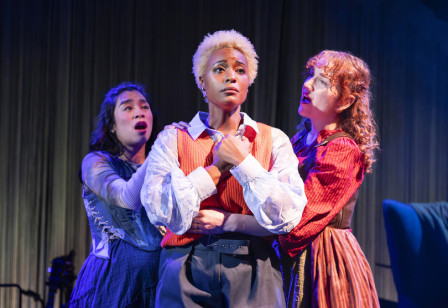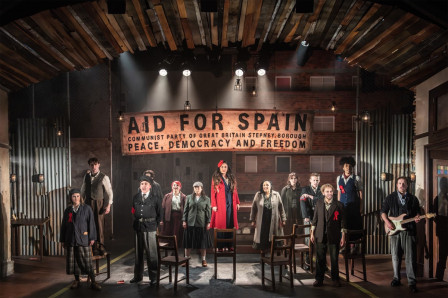Review: THE FATHER AND THE ASSASSIN at National Theatre
Playwright Anupama Chandrasekhar traces the life of the Nathuram Godse — journalist, nationalist and one time devoted follower of India’s spiritual leader Gandhi, who through radicalisation became his assassin.
 Hiran Abeysekera in THE FATHER AND THE ASSASSIN at the NT. Photo by Marc Brenner
Hiran Abeysekera in THE FATHER AND THE ASSASSIN at the NT. Photo by Marc Brenner
Paul Bazely plays Mohanas Gandhi, the spiritual leader known to millions around the world as Mahatma, or ‘great souled’ for his championing of non-violent causes — especially the peaceful transitioning of India from British rule to independence. Hiran Abeysekera (fresh from his Olivier award winning performance in Life of Pi ) assumes the lead role of Godse as narrator of his own life. Charting his childhood — raised as a girl to appease the gods who’d cursed his family and caused the death of his three older brothers — Godse journeys through the excitement of Gandhi’s first minor legal victories against the British justice system and on to the key decisions made with Jawaharlal Nehru and Muhammad Ali Jinnah which he and others viewed as appeasement of the Muslim minority and a betrayal of the Hindu majority. As religious intolerance and divisions grow, the decision is made to partition the country into Hindustan and Pakistan leading to catastrophic violence and the deaths of some two million souls just as Gandhi had foretold and warned against.
Director Indhu Rubasingham has created a fast moving and entertaining history lesson on the vast Olivier stage. The set is simple and sparse, eschewing the ubiquitous Indian bright colour palette and instead the production weaves childhood friendships and early interactions into the narrative to add colour and complexity. Further still, the actors have been encouraged to strongly flesh-out their on-stage personalities and behaviours to create believable drama, tension, (and by often breaking the fourth wall) a greater-than-expected degree of humour given the context and events.
The giant stage’s revolve is used to good effect to imbue pace and transition and the device aids the depiction of Godse’s sudden radical interpretation of key events and his rejection of Gandhi’s methods and ideals. Parallels can be drawn with the blinkered and extremist doctrines espoused in many modern settings and indeed, the spectre of Brexit is used at one point to illustrate the comparative modern intolerances which should serve as a warning to all of us on the dangers of seeking to view religious and cultural diversity as negative rather than a benefit to the society in which we live.
The three shining brass bullets suspended above the stage at the opening, finally hit their target and Godse finds his place in the history books. Whether his act was one of a selfless patriot or the result of a tragically undernourished ego, remains a bone of contention and discussion.
The production runs to 14 October.
Latest News

 Germán Cornejo’s Tango After Dark to return to the West End’s Peacock Theatre this Spring
27 January 2026 at 15:23
Germán Cornejo’s Tango After Dark to return to the West End’s Peacock Theatre this Spring
27 January 2026 at 15:23

 Ballad Lines at Southwark Playhouse (Elephant) - Production images released
27 January 2026 at 14:36
Ballad Lines at Southwark Playhouse (Elephant) - Production images released
27 January 2026 at 14:36

 Sierra Boggess to return to London with Solo Concert in the West End
27 January 2026 at 14:07
Sierra Boggess to return to London with Solo Concert in the West End
27 January 2026 at 14:07

 Review: CABLE STREET at Marylebone Theatre
27 January 2026 at 13:24
Review: CABLE STREET at Marylebone Theatre
27 January 2026 at 13:24